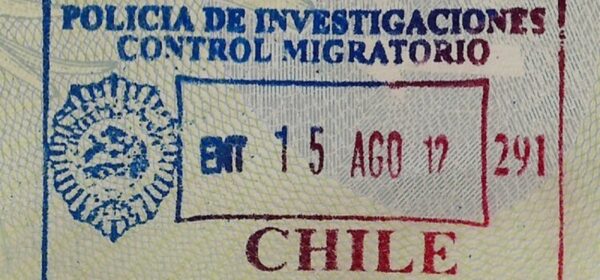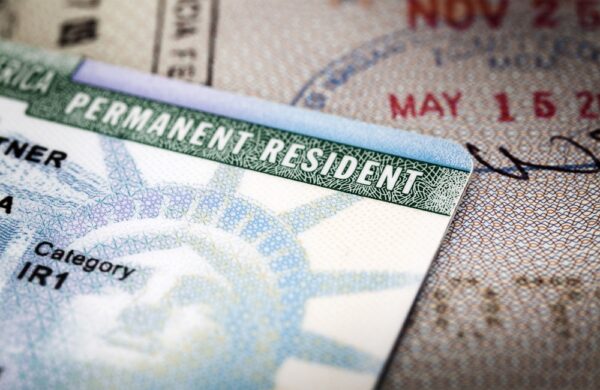Germany offers a high education standard, a strong economy, and rewarding opportunities for foreign-skilled workers. The country is one of the most popular destinations for immigrants looking to improve their quality of life. Also, if you have a legal residency permit in Germany, you can travel visa-free to other European Union and Schengen countries. This is why many immigrants are striving to get permanent residency in Germany. If you're looking to achieve this, you need a residence permit (temporary in most cases). We will simplify the application process to help you avoid getting misled. Let's get started.
What is a German Residence Permit?
A German residence permit (also known as a settlement permit) is a document issued to non-EU nationals that permits them to reside in Germany. Foreign nationals who are not citizens of Switzerland, Norway, Iceland, Lichtenstein, Schengen, and EU countries cannot stay in Germany for more than ninety days without this document. There are different types of resident permits—each with unique perks, requirements, and length of stay.
Temporary resident permits or limited residence permits are more popular and easier to get. These basically allow holders to study, work, and engage in some activities for a year. The holder gets limited but adequate access to social amenities and must renew it to keep staying in the country. Furthermore, the activities you can access depend on the reason for the visa. Most study visas may not allow you to work, while work visas limit you to a job or jobs relating to your skill or academic qualification.
Alternatively, if you want to get permanent residency in Germany, you need a ‘Settlement Permit’ (Niederlassungserlaubnis in German). This type of residence permit has better perks and even gives you a shot at citizenship. In most cases, you must have a temporary residence permit before applying for this. For instance, if you are married to a German citizen or someone with a permanent residence permit, you can apply for a temporary residence permit. Similarly, foreign students and skilled workers who want to stay permanently can apply to the German Immigration Service (Ausländerbehörde in German).
Reasons to Get Permanent Residency in Germany
A settlement permit allows you to stay indefinitely in Germany and has a lot of added benefits. Aside from indefinite access to the country and its goodies, you get to enjoy the following benefits;
1. You can freely stay in Germany permanently without renewing your residence permit.
2. You get to enjoy primary social security assistance, like unemployment benefits.
3. You get access to other jobs that are not related to your academic qualifications or training. Temporary work permit holders can only work on jobs with insufficient German workers.
3. You can get a bank loan for a car or to start a business. Also, the business may not be related to your academic qualifications or training.
4. You can access financial assistance when enrolled in any German university.
5. When you have lived legally in Germany for five uninterrupted years, you can apply for German citizenship by naturalization.
6. Your children and spouse can join you in Germany, but they will need a temporary residence permit, which will be upgraded to a permanent one after a few years.
How to Get Permanent Residence in Germany
With a German Permanent Residence Permit, you can stay in Germany for as long as you want without the need for renewals. You can also travel in and out of the country whenever you need to unless you're gunning for citizenship by naturalization. You can get this permit after using the temporary residence permit to stay in the country for a few years.
People with the EU Blue Card can easily get permanent residency in Germany. Additionally, some immigrants, such as graduates of German universities or extraordinarily skilled workers, can get their permanent residence permits faster. There are other vital requirements for immigrants applying for the settlement permit. The most popular ones are outlined below.
Eligibility Criteria for Permanent Residency in Germany
For immigrants from non-EU countries that do not have any special trade affiliations with Germany, The requirements to be eligible for permanent residency in Germany are as follows:
1. You must have been living in Germany as a skilled worker for at least four years.
2. You must be capable of accommodating yourself and covering your living expenses without public assistance. Also, if you have a family, you must be able to cater to every member of your family (dependents).
3. You must have contributed to the statutory pension insurance fund for at least 48 months. It is mandatory for eligibility, but you can do it voluntarily.
4. You must work on a job that is related to your academic qualification or vocational training and have no criminal record.
5. You must have German language proficiency, at least on a B1 level.
Meanwhile, if you possess an EU Blue Card, You must have at least 27 months of employment and basic knowledge of the German language with basic knowledge (level A1) of German. Meanwhile, if you have sufficient command (level B1) of the German language, the minimum period of employment will be reduced to 21 months. In both cases, your employment must meet the requirements for issuing an EU Blue Card. Your German language proficiency level should correspond to the Common European Framework of Reference for Languages (GERR). Other necessary requirements are as follows.
1. You must have contributed to the statutory Pension Fund for the duration of your employment. Contributions paid for entitlement to comparable benefits by another insurance/pension institution are also accepted.
2. You must also have a secure means of support, including health insurance for yourself and your family members.
3. You must have no criminal record, and your main residence should be in Berlin.
Documents Required for Settlement Permit Application
To be eligible for a settlement permit, you must submit documented evidence of the requirements above. The German immigration service can also request additional documents if needed. The documents vary for individuals;
For General Individual:
1. Your country's International Passport (and the EU Blue Card for holders).
2. The Settlement Permit Application Form
3. One recent biometric picture that follows the German visa picture guidelines: A portrait 35 x 45 mm shot with neutral facial expression, mouth closed, eyes on the camera, and a light background.
4. Health insurance certificate: If you are enrolled with statutory insurance, you must submit a confirmation from your provider. Those enrolled with private health insurance must submit the insurance policy and proof of paid contributions.
5. German language proficiency certificate.
6. Extra documents such as a German university degree or vocational certificate for those who studied or trained in Germany, a Marriage Certificate for people married to German citizens or permanent residents, or a professional license for highly qualified professionals.
For Foreign workers:
1. Employment Contract.
2. A recent (within the previous 14 days) certificate from your employer.
4. Your salary statements from the previous six months.
5. The pension insurance institution certificate.
For Self-employed, Entrepreneurs and Freelancers:
1. A completed audit report completed by a tax consultant, auditor, or a tax agent.
2. Your last tax assessment notice.
For Pensioners:
1. Notice of pension entitlement
2. Document of home ownership or a lease agreement as proof that you can adequately accommodate yourself and any family members since you no longer work.
3. Proof of address registration as proof that Germany is your main place of residence.
4. Notice of pension information from the German Pension Fund.
5. Proof of contributions to social security.
How to Apply for a German Settlement Permit?
To apply for a German residence permit, you have to make an appointment with local German Foreigner Authorities (Ausländerbehörde) near you before your current residence permit expires. You can find the nearest Ausländerbehörde (foreigner authority in Germany) on the Federal Office for Migration and Refugees (BAMF) website.
The steps involved are to gather all the required documents, submit them, pay the application fee, and enter an interview. After your interview, the authorities will contact you in three weeks or less with a decision. When your application is granted, you must complete the remaining half-fee payment to collect your passport.
Settlement Permit Application Fees
The application fees vary based on applicant status and country of origin. The general application fee to apply for a German permanent residence permit is €113. However, highly qualified professionals pay €147, entrepreneurs and freelancers pay €124, while Turkish nationals under 24 pay €28.80, and those over 24 pay €37.00.
You usually pay half of the application fee when submitting the documents and the other half when it is granted. So, If your application is rejected, you only have to pay a processing fee of €56.50. The same thing applies to other application categories and fees. Also, payment is made in cash or via a bank transfer.
Limitations – Settlement Permit Withdrawal/Expiry
The German settlement permit does not expire or need renewal. However, you may lose your permanent residence in Germany if you do any of the following:
1. If you migrate to another country or stay outside Germany longer than six consecutive months in a year.
2. If you provided false information or fake documents to the Immigration Authorities during your application.
3. If you are a threat to German public safety and order.
Conclusion
There are many types of resident permits that allow foreigners to stay in Germany. If you’re looking to become a permanent resident, you will need a settlement permit. Typically, you must have a temporary residence permit before applying for a permanent one. Millions of immigrants are queuing yearly for this. Also, you may not have ample time remaining on your temporary permit, so you have to get it right. The guidelines above will help you boost your chances of getting approved.
















